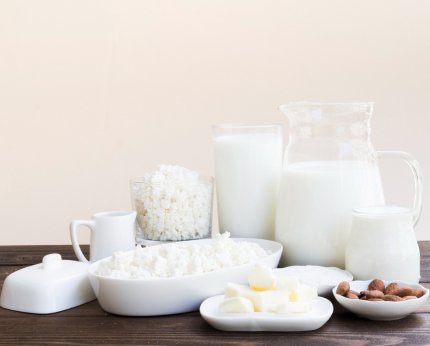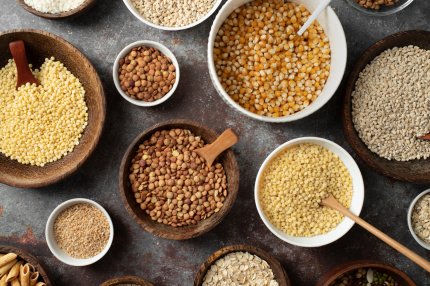Health, a strong body and the absence of any disease are the most important things for a person. The strength of joints and bones depends on what, of course, a balanced and proper diet. Products that contain calcium, as well as vitamin D, have a positive effect on our musculoskeletal system. Calcium is a mineral that is very important for humans, it supports the strength of bones and teeth. This trace element is not produced in the body on its own, it must be added to your diet. It is worth noting that for effective assimilation, additional vitamin D is needed.
What is calcium needed for and how to use it correctly
What exactly does calcium affect - this mineral, the most common in the body, more than 98% is contained in the human skeleton. Over time, Ca is "washed out" of the bones, as a result of which osteoporosis can develop - in this disease, the bones become very fragile. Therefore, it is very important to monitor the level of calcium starting from childhood. The norm of calcium per day is different, it can change throughout life. Providing the body with the daily norm of calcium is not a difficult process, it is only necessary to drink a glass of milk per day.
For example, the norm of calcium per day for men is one thousand milligrams, over seventy years old - 1200 milligrams, the norm of calcium per day for women is the same as for the "strong half of humanity". The norm of calcium per day for children depends on age: up to six months - two hundred milligrams, 7-12 months - 260 mg, from one to three years - 700 mg, from four to eight years - one thousand milligrams, from nine to eighteen years - 1300 mg.

Dairy products
Which foods contain calcium and how to properly prepare a diet. Of course, first of all, pay attention to dairy products, calcium content in 100 grams:
Milk - 120 mg, the amount of calcium in this product may vary slightly depending on the type of milk: cow milk contains up to one hundred and twenty milligrams of trace elements per hundred grams, goat or sheep milk has a slightly different amount of calcium;
Cheeses — from 500-1000 mg, have a high concentration of calcium, for example Parmesan cheese: one hundred grams of cheese contains 1184 mg of Ca;
Yogurts - 122-124 mg, are a good source of Ca, especially if they are natural and without various impurities;
Kefir (120-126 mg), cream (86-91 mg), sour cream (84-90 mg).
Green vegetables and fruits

Foods rich in calcium - hospitals and nutritionists insist that the main part of Ca enters the body with food. Many people, such as vegans, have given up milk, fish and meat. That is why green vegetables and fruits are the alternative that will replace animal food, calcium content per hundred grams of product:
Cabbage — 48 mg;
Parsley — 245 mg, dill — 223 mg;
Basil — 177, and garlic — 180 mg;
Green onion — 100 mg, spinach — 106 mg;
Celery root — 63 mg, greens — 72 mg;
Cilantro - 67 mg;
Broccoli and sorrel - 47 mg;
Kiwi, lemon, tangerines - 40 mg.
It is important: always follow the norms of consumption of various minerals, including Ca.
Nuts and seeds

Foods rich in calcium are nuts and various seeds. People who lead an active lifestyle, exercise and eat right, know what snacks are. Nuts and seeds are the perfect snack anytime, anywhere. List of Ca-rich nuts and seeds:
Sesame — 1474 mg, chia — 631 mg;
Almonds — 273 mg, hazelnuts — 188, pistachios — 105 mg;
Walnuts - 89 mg;
Sunflower seeds - 78 mg;
Pumpkin seeds and cashews - 76 mg.
A well-balanced vegan diet contains the right amount of Ca, protein and potassium, which is very good for bone health.
Fish and seafood

Products with calcium contribute to normal blood clotting, regulate heart rhythm, also participate in muscle contraction and relaxation, and are responsible for a person's mental health. The Ca content in fish is not very significant, but it is an excellent source of the dietary mineral. For example, fish oil contains Ca and vitamin D, which is necessary for normal functioning. In addition, fish oil contains Omega-3 fatty acids, which promote almost complete absorption of calcium. Calcium-rich fish and seafood:
Sea bass - 120 mg;
Red and black caviar - 95/55 mg;
Shrimps and oysters - 70/60 mg;
Herring - 60 mg;
Mullet, mussels, pollock — 70/50/40 mg;
Capelin, tuna, cod - 30 mg;
Gorbusha, salmon — 20 mg.
Note: in addition to a balanced diet, elderly people should use a variety of food supplements with calcium.
Wheat and soybeans

In addition to the products listed above, Ca is also found in grains and beans:
Soybeans - 348 mg;
Chickpeas - 190 mg;
Wheat bran and beans - 150;
Peas, oatmeal, lentils — 89/83 mg;
Barley groats - 80 mg.
Taking into account the table with the content of calcium in food, you should know and remember that the absorption of calcium depends on the type of food. Not all of the calcium contained in the product will be absorbed by the body. What factors affect the extent to which Ca will be absorbed: the presence of the necessary enzymes, the number of lactobacilli, the state of the microbiota, the level of phosphorus, magnesium, and insulin.
Lack of calcium in the body can lead to the following problems:
Cramps, periodic muscle pain, spasms in the arms, calves, and thighs may appear;
Insomnia is possible, a low level of Ca affects the quality of sleep, sound and healthy sleep is directly related to the level of calcium;
The health of the teeth, they consist almost entirely of Ca, its deficiency will definitely affect the condition of the oral cavity. Low calcium content is primarily caries, then tooth fragility and various infectious diseases;
Insufficient Ca is dry skin, dull hair, and brittle nails;
Pain during "critical days" - this can also be an indicator of a low Ca level;
A high level of blood pressure — Ca is an element that normalizes it;
A variety of fractures - a lack of mineral, can turn ordinary blows into serious fractures;
Numbness of the limbs and fingers — symptoms may indicate serious Ca deficiency;
General fatigue and lethargy - the level of calcium affects the general well-being, often manifested by drowsiness, as well as inattention.
Calcium deficiency can cause sudden acute illnesses. Causes of calcium deficiency: hormonal disorders, magnesium deficiency, active uptake of calcium by bone tissue, impaired vitamin D metabolism, kidney disease, use of certain medications. Calcium deficiency, the consequences of which are listed above, can have a very negative impact on a person's life.
Increased calcium levels are caused by hyperparathyroidism (enlargement of the thyroid gland) and malignant neoplasms (damage of the bone system), less often by sarcoidosis, tuberculosis, long-term immobility, kidney transplantation, dehydration, Addison's disease. Elevated calcium level results: calcification of the brain, kidneys, valves, as well as heart vessels, complete or partial muscle disorders, deposition of Ca salts in the joints, which leads to limitation of mobility and complete immobility, renal, respiratory, heart failure, hypercalcemic crisis .
Before taking Ca preparations, it is worth learning about the side effects of excessive consumption of this mineral — constipation, bloating and accumulation of gases in the intestines, the risk of kidney stone formation. Calcium can reduce the absorption of some medications, including osteoporosis medications, thyroid medications, and some antibiotics. Therefore, before use, you should consult a doctor and pass all the necessary tests.

